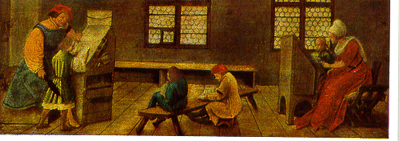Look forward to next year's
International
English Spelling Day
October 9, 2007

UNILATERAL DECLARATION
OF INTERNATIONAL SPELLING
DAY
The Day that matches the
Korean Hangul 'Great Letters' Day
English-Spelling Day
Internationl Spelling Day
Spelling Wotchers Day
Great Letters Day
Everyone can enjoy Internationl Spelling
Day:
Publicity, press releases, interviews,
classroom activities, quizzes,
Drama - scripts are available or write your own
Spelling games, Sales of gimiks and gajets, A competition for
Spelling Day
Spelling Spotters and Spelling Watchers activities
And when ENGLISH SPELLING
IMPROVEMENT COMES IN -
A PUBLIC HOLIDAY all over
the world!
Be Spelling Spotters and Spelling
Wotchers
On Spelling Day, October 9, look around you
-
for
misspelled signs, spelling in national newspapers and books,
and simplified spellings used in signs, trademarks, new
words,childrenís writing, commercial
advertising.
FIND OUT about people who cannot read,
reform in other languages, changes in English spelling
Have a special study of Spelling at school -
and University
and practice some Spelling Reform
yourself
INTERNATIONAL Competition for Spelling
Day
For the best collection of spelling
jokes. Collect cartoons, limericks, quips, riddles, anecdotes,
drawings, plays - and make up your own.
Prizes for individual collections:
Booklets of Spelling Games andSpelling Cartoon memo
booklets.
Prize for the best school collection: A
take-home Teach Yourself toRead and Spell video and manual. The
usual competition rules apply.
Contributions without prior copyright may be included in a
Spelling Jokebook being compiled in aid of literacy
innovations.
Send your contribution to Val Yule. Label your entry Spelling
Jokes Competition
Closing date - September 9 2007.
Winners announced December 1 2007
Why do Koreans
celebrate their own
National Spelling Day?
King Sejong the
Great, the Fourth Monarch of
the Yi Dynasty of the Chosen Kingdom in Korea hundreds of years
ago ordered his scholars to find a simple method of writing
down spoken Korean so that even the common people would be able
to express their thoughts in writing.
They looked around overseas, but saw
nothing they thought good enough, so they made up their own,
promulgated in 1443 - a set of symbols consisting of 11 vowels
and 17 consonants that are arranged in syllables which block
into words. In 1933 this was standardised to tenvowels and 14
consonants, making it easier still. Today the Hangul alphabet
is acclaimed as one of the world's great literacy achievements
and themost remarkable phonetic alphabet ever produced.
When Korea was under Japanese
occupation, using and maintaining the Hangul writing system
instead of Japanese became a major tool of expression of Korean
nationalism. When Korea wasliberated from Japan in 1945, Hangul
Day was instituted as part of the celebrations,with a national
holiday every year.
Today it is no longer a national holiday but it is still
celebrated.
See the story of the
Korean writing system, and
how change was
brought in
- Hangul Day
is celebrated with a ceremony
in which distinguished guests and scholars commemorate the
Handle writing systemand hold a conference to ways of keeping
it as useful as possible. Essay writing competitions are also
organised throughout Korea.
How marvellous when the English writing
system is also celebrated and made as useful as possible!
How can schooling be made
into real Discovery Learning?
Be well prepared before Spelling Day
2007

See also
The
Simplified Spelling Society at www.spellingsociety.org
Back to Ozideas Home Page
|


